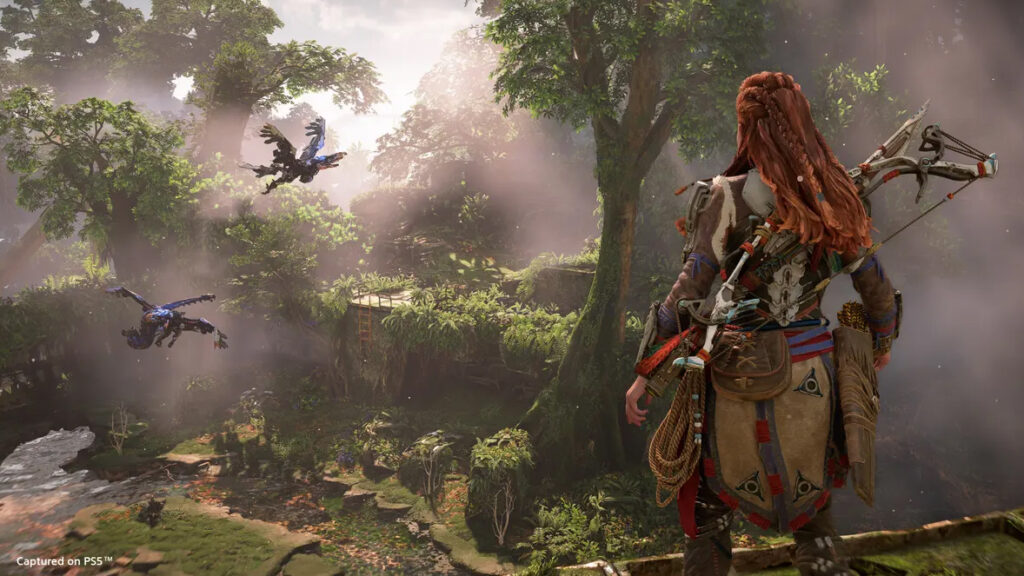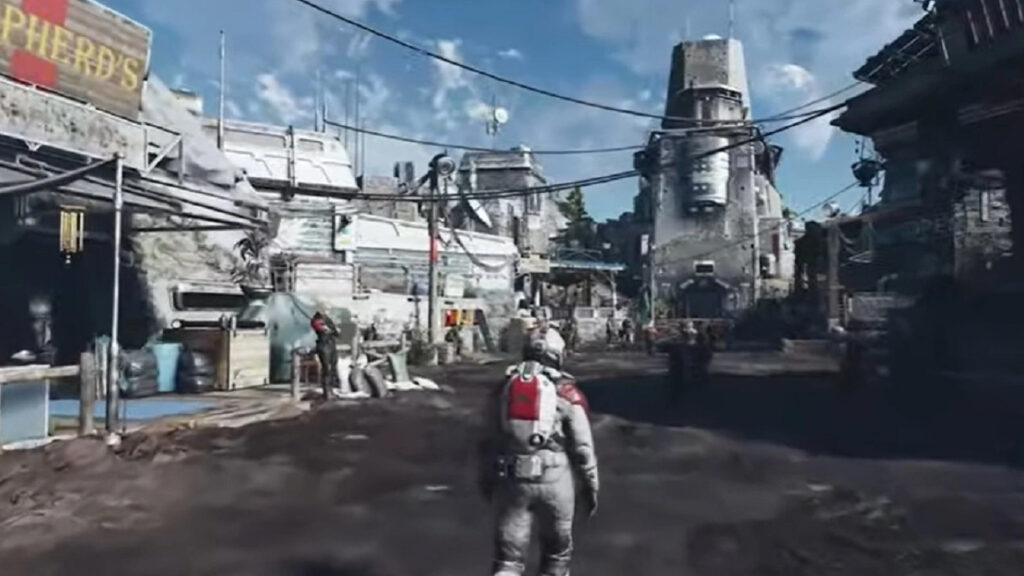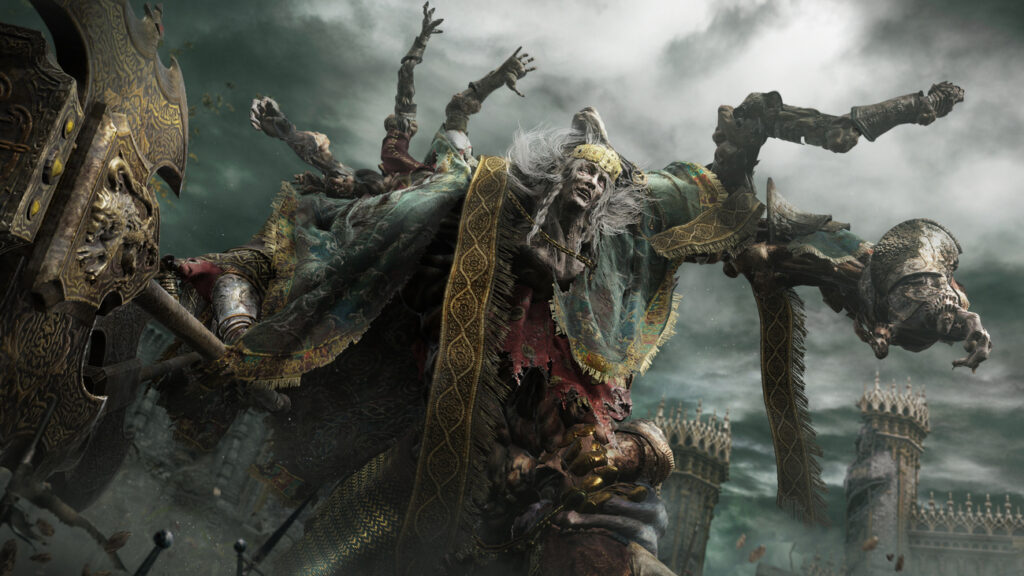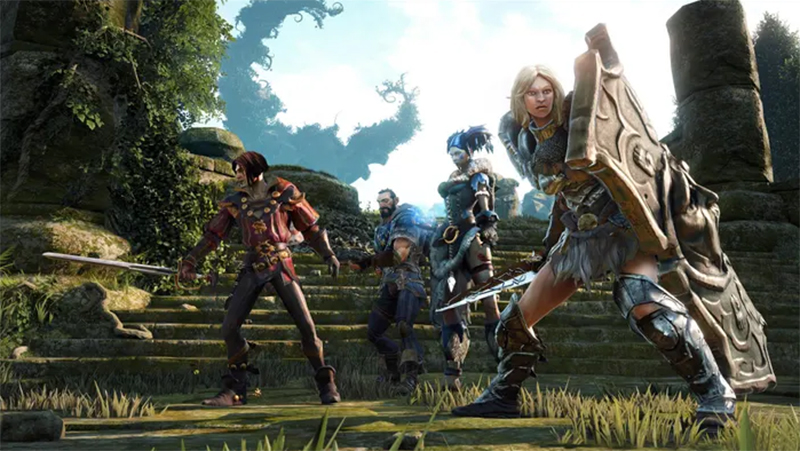In recent years, one of the most significant trends in the gaming industry has been the rise of narrative-driven games.
The world of video games has evolved dramatically over the past few decades, transitioning from simple pixelated adventures to immersive virtual worlds.
These games prioritize storytelling and character development, offering players a unique and engaging interactive experience.
As 2023 nears closing, we find ourselves amidst a new wave of narrative-driven games that push the boundaries of storytelling in the medium.
The Evolution of Narrative-Driven Games
The roots of narrative-driven games can be traced back to early text-based adventures like Zork and Colossal Cave Adventure.
These games relied heavily on written descriptions and player input to advance the story.
While they lacked the visual and audio elements we associate with modern gaming, they were pioneers in interactive storytelling.
In the late ’80s and early ’90s, the advent of graphical adventure games, such as Monkey Island and Day of the Tentacle, introduced players to a more visually engaging form of storytelling.

These games featured colorful characters, witty dialogue, and intricate puzzles, setting the stage for a new era of narrative-driven gaming.
The real turning point, however, came with the release of Myst in 1993.
This game pushed the boundaries of what was possible in terms of visual storytelling.
With its breathtaking pre-rendered graphics and cryptic narrative, Myst demonstrated the potential for narrative-driven games to immerse players in rich, atmospheric worlds.

As technology advanced, so did the possibilities for narrative-driven games.
The advent of 3D graphics and voice acting in the late ’90s allowed developers to create more lifelike characters and environments.
Titles like Final Fantasy VII and Metal Gear Solid blended cinematic storytelling with interactive gameplay, further solidifying the genre’s appeal.
In the 2000s, the emergence of open-world games like Grand Theft Auto III and The Elder Scrolls III: Morrowind expanded the horizons of narrative-driven gaming.

Players could now explore vast, open environments and shape their own stories within these worlds.
This shift towards player agency in storytelling laid the groundwork for the diverse range of narrative-driven games we see today.
The Impact of New Technology
The gaming industry is riding a wave of technological advancements that are reshaping the narrative-driven genre.
Two key areas where technology has made a significant impact are graphics and artificial intelligence.
Graphics have come a long way since the days of Myst.
Today’s gaming hardware can render incredibly detailed and realistic environments, enhancing immersion and storytelling.
Games like The Last of Us Part II and Red Dead Redemption 2 are known for their stunning visuals, which contribute to the emotional impact of their narratives.

High-definition displays, ray tracing technology, and improved texture rendering all play a part in making these games visually spectacular.
Artificial intelligence has also played a pivotal role in narrative-driven games.
Developers are harnessing AI to create more dynamic and responsive storytelling experiences.
For example, AI-driven characters in games like Detroit: Become Human can adapt their behaviors and dialogue based on player choices, creating a sense of agency and consequence in the narrative.
This technology enables branching storylines and multiple endings, giving players a greater sense of control over their gaming experiences.
Additionally, natural language processing AI is making strides in improving dialogue and voice acting in games.
Characters can now engage in more meaningful conversations with players, responding to a wider range of questions and prompts.
This technology enhances immersion by making interactions with in-game characters feel more genuine and dynamic.
Standout Titles released or announced in 2023
With technology continuously evolving, narrative-driven games have reached new heights in 2023.
Let’s take a closer look at some standout titles that exemplify the genre’s current state and some we’re eagerly awaiting.
Horizon Forbidden West

Horizon Forbidden West is a great example of how storytelling and cutting-edge technology can seamlessly meld to craft an enthralling gaming experience.
Developed by Guerrilla Games, the same studio responsible for the critically acclaimed Horizon Zero Dawn, this action-adventure sequel takes players on a journey that transcends the boundaries of conventional storytelling.
The world of Horizon Forbidden West is a post-apocalyptic landscape of unparalleled beauty and danger.
Set in a distant future where humanity has fallen, the remnants of civilization give way to a vibrant and mysterious world filled with robotic creatures of all shapes and sizes.
These mechanical behemoths roam the land, dominating the wilderness, and making every step outside the safety of settlements an exhilarating and perilous adventure.
The narrative unfolds as players step into the shoes of Aloy, the franchise’s iconic protagonist.
Aloy’s journey is rife with mystery and intrigue, as she seeks to uncover the secrets of the past and understand the forces that continue to shape this dystopian world.
Her personal quest intertwines with the fate of the land itself, making for a narrative that is both deeply personal and epic in scale.
What truly sets Horizon Forbidden West apart is its ability to use its narrative not just as a backdrop but as a driving force that propels players forward.
The story is interwoven with every aspect of the game, from the challenges players face in combat to the environmental puzzles that require wit and observation.
The game introduces players to a diverse cast of characters, each with their own motivations and contributions to the narrative.
Aloy’s interactions with these characters, both friendly and adversarial, are dynamic and emotionally resonant.
Dialogues are expertly crafted, making every conversation a chance for players to learn more about the world, its history, and the characters that inhabit it.
Choices matter in Horizon Forbidden West.
Players’ decisions can shape the outcome of the narrative and influence the relationships Aloy forms along her journey.
This element of player agency adds a layer of personal investment to the storytelling, as each decision carries weight and consequence.
Starfield

Starfield beckons players to embark on an interstellar journey, inviting them to navigate the boundless expanses of the cosmos.
However, this isn’t just another space exploration game; it’s a narrative masterpiece, carefully crafted to immerse players in a rich and engaging story.
At the heart of Starfield lies a compelling narrative that promises to be nothing short of epic.
As players traverse the galaxy, they will find themselves entangled in a web of intrigue, encountering alien civilizations, unraveling mysteries that have spanned eons, and confronting moral dilemmas that will test the very core of their character.
The narrative-driven aspect of the game is designed to be a central pillar, ensuring that players are not just voyaging through space but also experiencing a captivating and emotionally resonant story.
What truly sets Starfield apart is its ingenious use of cutting-edge technology.
Bethesda Game Studios has harnessed the latest advancements in gaming technology to create an immersive, futuristic adventure like never before.
The game leverages next-generation graphics and physics engines to render breathtakingly realistic celestial vistas, from the glittering majesty of distant stars to the haunting beauty of alien worlds.
The attention to detail is astonishing, with every spaceship, space station, and celestial body meticulously designed to enhance the sense of wonder and immersion.
Moreover, Starfield incorporates an advanced AI-driven storytelling system, allowing the game’s narrative to adapt and evolve based on the player’s choices and actions.
This dynamic narrative approach ensures that each player’s journey through the cosmos is a unique and personal experience, where decisions have real consequences and ripple effects across the expansive galaxy.
Bethesda’s commitment to storytelling excellence and technological innovation is poised to make Starfield a landmark title in the world of video games.
Elden Ring

In a monumental fusion of talent and creativity, FromSoftware, the revered developer behind challenging action games such as Dark Souls and Bloodborne, has joined forces with the legendary author George R.R. Martin to birth a new masterpiece – Elden Ring.
This unprecedented collaboration represents a seismic shift in the world of video games, promising an epic fantasy world that is as rich in lore as it is in dark, narrative-driven storytelling.
Elden Ring emerges as a phoenix from the ashes of anticipation, captivating gamers worldwide with the promise of an unforgettable adventure.
The pedigree of FromSoftware’s knack for crafting intricate gameplay mechanics and unforgiving challenges, combined with George R.R. Martin’s unparalleled talent for weaving intricate and morally complex narratives, sets the stage for an experience that transcends conventional gaming boundaries.
At the heart of Elden Ring lies a sprawling, intricately woven narrative, a tapestry of myths, legends, and mysteries waiting to be unraveled by players daring enough to step into this dark and enigmatic world.
The lore of Elden Ring runs deep, encompassing the rise and fall of kingdoms, the ascendancy of mythical beings, and the inevitable clash of titanic forces.
As players delve deeper into the game, they will discover a narrative brimming with political intrigue, existential dilemmas, and tragic tales of heroism and betrayal.
Elden Ring doesn’t just offer a storyline on the periphery; it is an integral part of the gameplay experience.
Each encounter, each challenge, and each decision players make contributes to the unfolding narrative, offering a sense of agency that profoundly affects the fate of the game world.
The choices made in Elden Ring can reshape the course of the story, leading to multiple branching paths and diverse outcomes, providing a level of immersion that goes beyond mere entertainment and delves into the realm of interactive storytelling.
The gameplay mechanics of Elden Ring are as intricate as they are punishing, in keeping with FromSoftware’s tradition of delivering challenging experiences.
Players will need to master a wide array of combat techniques, explore treacherous landscapes, and confront formidable foes.
The game’s deep lore and narrative elements are seamlessly interwoven with its gameplay, offering players not only a visual spectacle but also an emotional and intellectual journey.
Elden Ring represents a convergence of two creative powerhouses, each bringing their unique strengths to the table.
FromSoftware’s expertise in crafting gameplay that pushes boundaries is complemented by George R.R. Martin’s unparalleled storytelling ability.
The result is a game that transcends the conventions of the medium, inviting players to embark on an unforgettable journey through a dark and mesmerizing fantasy world.
Elden Ring is an epic narrative-driven experience, a testament to the boundless possibilities when the worlds of literature and gaming collide.
Hellblade II: Senua’s Saga

The highly anticipated sequel to the critically acclaimed Hellblade: Senua’s Sacrifice is on the horizon, and it promises to take players on an even more profound and immersive journey into the depths of the human psyche.
This game isn’t just another action-adventure; it’s a thought-provoking exploration of mental health, wrapped in an engaging narrative that promises to redefine the boundaries of storytelling within the gaming medium.
At its core, Hellblade II delves into the psychological and emotional odyssey of its protagonist, Senua, who has already captured the hearts of players worldwide with her compelling and deeply relatable character.
The sequel picks up where the first game left off, continuing to unravel the complexities of Senua’s mind as she navigates a world filled with gods, demons, and her own internal struggles.
One of the standout features of Hellblade II is its utilization of improved technology.
The developers have harnessed the latest advancements in graphics, audio, and motion capture to create a visual and auditory masterpiece.
The game’s environments are breathtakingly detailed, with every shadow and flicker of light contributing to the eerie and immersive atmosphere.
This heightened level of realism amplifies the emotional impact of the narrative, drawing players deeper into Senua’s world and her tumultuous mental state.
Mental health remains a central theme in Hellblade II, and the sequel continues to approach it with sensitivity and nuance.
Senua’s struggles with psychosis and her inner demons are portrayed in a way that fosters empathy and understanding, shedding light on the often-misunderstood complexities of mental health issues.
As players accompany Senua on her journey, they will not only bear witness to her battles but also gain a deeper appreciation for the resilience of the human spirit.
The narrative-driven experience in Hellblade II is poised to be even more immersive and captivating than its predecessor.
The story is intricately woven into the gameplay, with every moment of action, every puzzle solved, and every encounter with the supernatural contributing to the narrative’s progression.
Player choices and actions will continue to shape the course of Senua’s story, creating a personalized and emotionally resonant gameplay experience.
Hellblade II represents a bold step forward for the gaming industry, pushing the boundaries of storytelling and emotional engagement.
It stands as a testament to the power of video games as a medium for conveying complex and deeply personal narratives.
As players prepare to embark on Senua’s new journey in 2024, they can expect a thought-provoking and emotionally charged experience that challenges not only their gaming skills but also their understanding of the human condition.
Fable IV

Fans of the beloved Fable series are in for a treat as the fourth installment, aptly titled Fable IV, is poised to make its triumphant return in late 2024.
Known for its distinctive blend of humor, whimsy, and morality-driven storytelling, Fable IV promises to reignite the magic of the franchise while introducing exciting new elements to captivate both long-time fans and newcomers alike.
At the heart of the Fable experience lies the player’s ability to shape their character’s destiny through choices that resonate deeply with the game’s themes of morality and consequence.
In Fable IV, players will once again have the power to determine their character’s path, from walking the virtuous road of heroism to venturing into the dark abyss of cunning villainy.
The choices made throughout the game will have far-reaching consequences, affecting not only the player character but also the world and its inhabitants.
The hallmark of the Fable series has always been its dynamic and ever-evolving world, and Fable IV takes this concept to new heights.
The game’s world is a living, breathing entity that responds to the player’s actions and choices.
This dynamic world immersion adds depth and realism to the storytelling, making every decision feel meaningful and impactful.
One of the standout features of Fable IV is its advanced AI-driven interactions.
The denizens of this enchanting world have their own lives, goals, and personalities, and their reactions to the player’s character are shaped by their individual beliefs and experiences.
This creates a rich and immersive social tapestry where relationships can be built or shattered, alliances formed or betrayed, and stories woven through player-driven interactions.
Moreover, the humor that has been a trademark of the Fable series remains intact in Fable IV.
The game’s world is rife with quirky characters, whimsical quests, and delightful surprises that ensure players will find themselves smiling or laughing even in the midst of their epic adventures.
This unique blend of lightheartedness and moral dilemmas adds a layer of charm and entertainment that is quintessentially Fable.
Fable IV promises to be a return to the series’ roots while embracing the possibilities of modern gaming technology.
It offers a captivating narrative-driven experience where players are not just participants but active authors of their own tales.
With its dynamic world, morally complex choices, and AI-driven interactions, each playthrough of Fable IV becomes a unique narrative journey, and the game itself stands as a testament to the enduring appeal of storytelling in the world of gaming.
As fans prepare to step back into the whimsical and thought-provoking world of Albion, they can anticipate a fantastical adventure that allows them to explore the depths of their own morality and shape their own legend.
Conclusion
This year marks a thrilling moment in the evolution of narrative-driven games.
With advancements in technology, developers are pushing the boundaries of storytelling, creating immersive and emotionally resonant experiences for players.
As we move forward, the new wave of narrative-driven games promises to engage players on a deeper level, blurring the lines between traditional storytelling and interactive gameplay.
Whether it’s through stunning visuals, AI-driven interactions, or complex moral choices, these games invite players to become active participants in the stories they tell.

